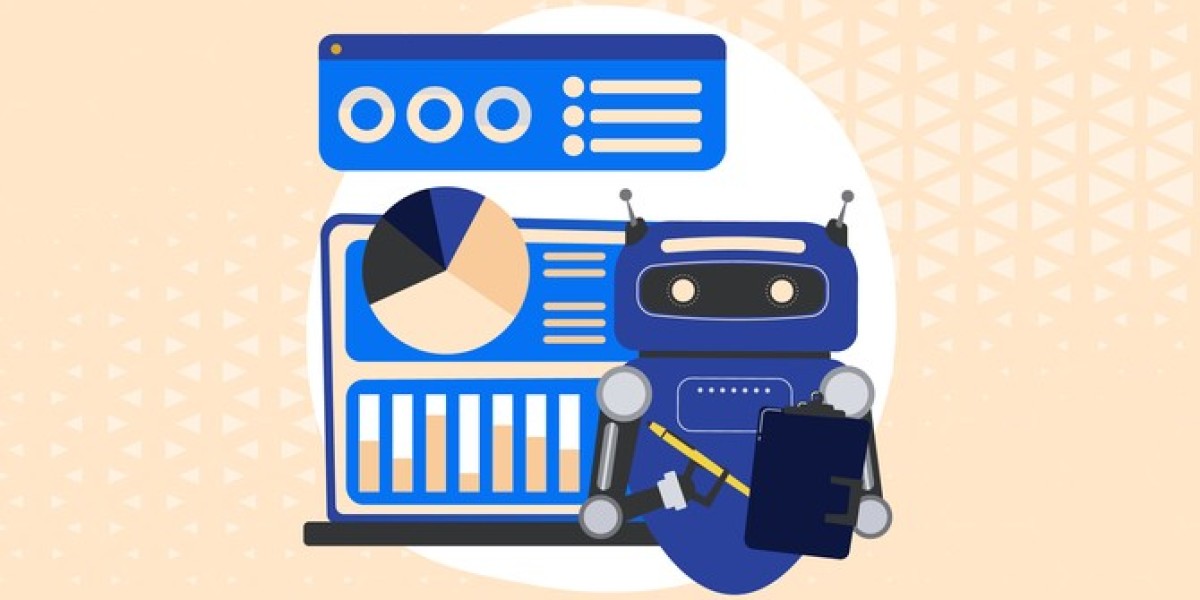The rapid advancement of technology is transforming various sectors of our economy, including agriculture. The impact of advanced technology on agricultural practices has been profound, revolutionizing the way farmers operate and improving the efficiency and sustainability of the industry. With the integration of cutting-edge innovations, farmers can now make more informed decisions, optimize their resources, and maximize their crop yield and quality.
One significant area where technology is making a notable difference is in the adoption of precision farming techniques. By utilizing real-time data and sophisticated analytics, farmers can monitor and manage their crops with greater precision. This not only leads to better resource allocation but also helps farmers identify and address issues such as nutrient deficiencies, water stress, or pest infestations more accurately. The result is an increase in productivity and profitability while minimizing the environmental impact of farming practices.
Advancements in technology have also led to better connectivity and communication in the agricultural sector. Farmers can now access and share data, collaborate with industry experts remotely, and access vital information for decision-making in real-time. This connectivity empowers farmers to stay ahead of challenges and adopt best practices effectively.
Additionally, the advent of sensors and monitoring systems has enabled farmers to track variables such as temperature, humidity, and soil conditions accurately. This data-driven approach allows for improved decision-making regarding irrigation scheduling, fertilization strategies, and the overall management of crops. Ultimately, the impact of advanced technology on agricultural practices is not only transforming the industry but also holds great promise for feeding a growing global population while promoting sustainable farming practices.
Enhancing Crop Yield and Quality with Cutting-Edge Innovations
Crop yield and quality are critical factors in the agricultural industry. As advancements in technology continue to unfold, cutting-edge innovations are being introduced to enhance crop production. These innovations aim to optimize key components such as soil fertility, water management, and pest control, thereby maximizing crop yield and ensuring high-quality harvests.
One such innovation that is revolutionizing crop yield and quality is precision farming. This approach utilizes advanced tools such as sensors, drones, and GPS technology to monitor and analyze various factors that affect crop growth. By precisely mapping fields, farmers can identify areas with specific needs, from adjusting irrigation to optimizing fertilizer application.
This targeted approach not only increases crop yield but also minimizes resource waste, preserving the environment in the process. Additionally, cutting-edge technologies like machine learning and data analytics allow farmers to make informed decisions based on real-time data, further enhancing the overall crop quality.
Revolutionizing Crop Monitoring and Management through AI
Advancements in artificial intelligence (AI) have paved the way for revolutionizing crop monitoring and management in the agricultural sector. By harnessing the power of AI, farmers can now have access to real-time data and analytics that enable them to make highly informed decisions and optimize their crop production like never before.
AI-based technologies such as drones, satellites, and sensors play a pivotal role in crop monitoring. These tools can collect vast amounts of data about various parameters such as plant health, soil moisture, and weather conditions, allowing farmers to monitor their crops with great precision. Through AI algorithms, this data can be analyzed and processed quickly, providing valuable insights into the overall health and development of the crops.
With this information at their disposal, farmers can effectively detect and address any potential issues before they escalate, ensuring that their crops remain healthy and productive. The implementation and optimization of AI-based solutions often involve the expertise provided by specialized services, such as AI Engineering Services, to ensure seamless integration and utilization of advanced AI technologies in agricultural practices.
Improving Pest and Disease Detection and Control with AI Solutions
Pest infestations and diseases pose significant challenges for farmers, impacting crop productivity and quality. However, advances in artificial intelligence (AI) are offering promising solutions for improving pest and disease detection and control in agriculture. By leveraging AI algorithms and machine learning techniques, farmers can now enhance their monitoring and management practices, leading to more effective and sustainable pest control strategies.
One way AI is transforming pest and disease detection is through the use of drones equipped with high-resolution cameras and sensors. These drones can fly over fields and capture detailed images of crops, allowing AI algorithms to analyze the data and identify signs of pest damage or disease symptoms. This enables farmers to quickly identify areas of concern and take targeted action to mitigate the spread of pests or diseases.
Additionally, AI-powered systems can continuously monitor crops in real-time, providing instant alerts to potential issues, such as sudden changes in temperature or moisture levels, which can indicate the presence of pests or diseases. This proactive approach to detection and control not only saves time and resources but also reduces the reliance on harmful chemical pesticides, promoting environmentally-friendly farming practices.
How AI is Transforming Soil Analysis and Nutrient Management
Soil analysis and nutrient management are crucial components of modern agriculture that play a significant role in determining crop health and productivity. Advancements in artificial intelligence (AI) are revolutionizing these practices, allowing farmers to gain valuable insights and make informed decisions regarding soil composition and nutrient requirements.
AI-based technologies are being developed to analyze soil samples accurately and efficiently. These systems employ machine learning algorithms to process vast amounts of data, including soil composition, moisture levels, and nutrient content. By leveraging AI, farmers can obtain real-time information about the soil health and its nutrient status, enabling them to optimize fertilizer application and tailor it to the specific needs of each crop. This not only minimizes nutrient waste but also maximizes crop yield and quality.
Furthermore, AI-powered tools can detect and predict potential nutrient deficiencies or imbalances, allowing farmers to take proactive measures to prevent yield loss and ensure sustainable soil management practices.
The integration of AI into soil analysis and nutrient management practices has the potential to transform modern agriculture. With its ability to process large quantities of data and provide real-time insights, AI empowers farmers to make data-driven decisions that can enhance crop productivity, optimize fertilizer usage, and promote sustainable farming practices.
As AI technology continues to advance, we can expect further innovations in this field, ultimately revolutionizing the way we understand and manage soils to meet the increasing demands of a growing population.
• AI-based technologies are revolutionizing soil analysis and nutrient management in agriculture.
• Machine learning algorithms process data on soil composition, moisture levels, and nutrient content.
• Real-time information about soil health and nutrient status helps optimize fertilizer application for each crop.
• AI-powered tools can detect and predict potential nutrient deficiencies or imbalances.
• Data-driven decisions enhance crop productivity, optimize fertilizer usage, and promote sustainable farming practices.
• Further advancements in AI will continue to transform the way we understand and manage soils.
The Role of Artificial Intelligence in Precision Farming
Precision farming has undergone a revolutionary shift with the integration of artificial intelligence (AI) technologies. AI has significantly transformed various aspects of agricultural practices, rendering traditional methods obsolete. With the ability to process massive amounts of data and make intelligent decisions, AI has become an indispensable tool in ensuring optimal resource utilization and maximizing crop efficiency.
One of the key contributions of AI in precision farming is its ability to analyze real-time data from various sources such as satellites, drones, and sensors. AI algorithms can process this data to provide valuable insights on crop conditions, weather patterns, and soil health. By harnessing this information, farmers can make informed decisions regarding irrigation, fertilization, and pest control, leading to improved crop yield and quality. This predictive capability of AI empowers farmers to adopt a proactive approach, minimizing risks and optimizing crop production.
FAQ
What is precision farming?
Precision farming refers to the use of advanced technologies, such as artificial intelligence, to optimize agricultural practices and increase productivity by precisely managing various aspects of crop production.
How does artificial intelligence benefit precision farming?
Artificial intelligence plays a significant role in precision farming by providing advanced analytics, automation, and data-driven decision-making capabilities. It helps optimize crop yield, improve crop monitoring and management, enhance pest and disease detection and control, and streamline soil analysis and nutrient management.
What are some examples of advanced technology used in precision farming?
Some examples of advanced technology used in precision farming include remote sensing technologies, drones, satellite imagery, sensors, and machine learning algorithms. These technologies enable farmers to collect and analyze vast amounts of data to make informed decisions and improve agricultural practices.
How does artificial intelligence enhance crop yield and quality?
Artificial intelligence enables farmers to precisely monitor and manage crops by analyzing real-time data on factors like weather conditions, moisture levels, and nutrient requirements. This allows for targeted interventions and optimized resource allocation, leading to increased crop yield and improved quality.
How does AI revolutionize crop monitoring and management?
AI helps farmers monitor crops more effectively by analyzing data from various sources, such as satellite imagery and sensor networks. Through image recognition and machine learning algorithms, AI can identify crop health issues, predict growth patterns, and recommend suitable management practices for optimal crop performance.
Can AI solutions help with pest and disease detection and control?
Yes, AI solutions can greatly improve pest and disease detection and control. By analyzing data on crop health, weather conditions, and pest behavior, AI algorithms can identify potential outbreaks and provide early warning systems. This allows farmers to take proactive measures and apply targeted treatments, minimizing the impact of pests and diseases on their crops.
In what ways is AI transforming soil analysis and nutrient management?
AI is transforming soil analysis and nutrient management by automating data collection and analysis processes. Through machine learning algorithms, AI can analyze soil samples, identify nutrient deficiencies, and recommend precise fertilizer application rates. This helps farmers optimize nutrient management, reduce costs, and improve soil health.
How can farmers leverage AI in precision farming?
Farmers can leverage AI in precision farming by adopting advanced technologies, such as sensors and drones, that collect data on various agricultural parameters. They can then use AI-powered platforms and software to analyze this data and receive actionable insights for making informed decisions about crop management, resource allocation, and overall farm optimization.



